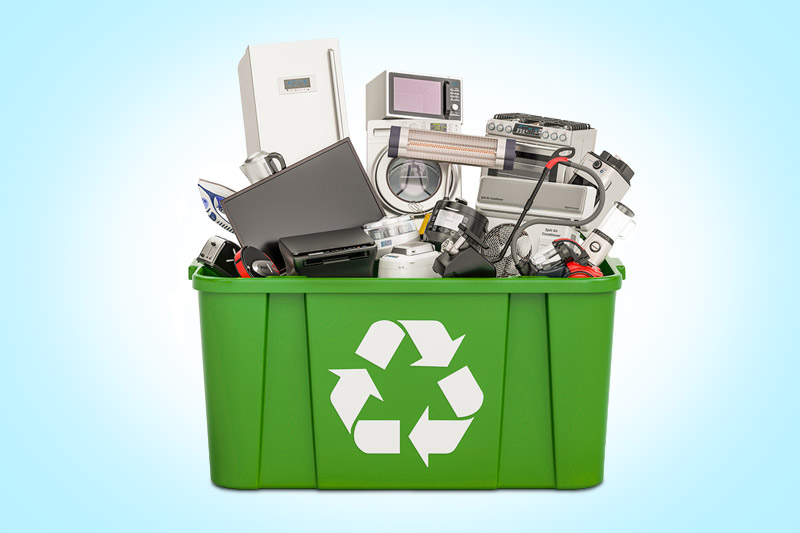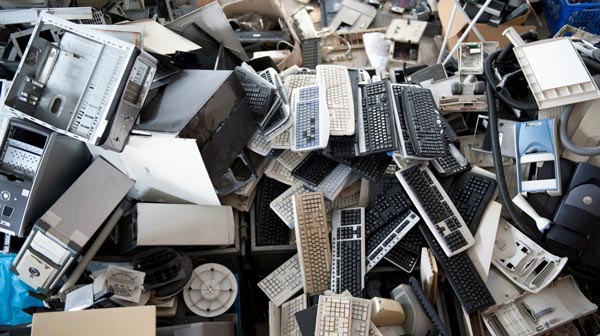Master the Needs of R2 Qualification to Ensure Sustainable Company Practices
Ensuring sustainable organization methods has actually ended up being a keystone of business duty in today's global landscape. At the center of this movement is the R2 certification, a rigorous criterion that sets bench high for electronics recyclers and refurbishers. As organizations aim to align with eco conscious methods, understanding the requirements of R2 qualification is critical. By sticking to these standards, companies not just bolster their environmental credibility however additionally obtain an one-upmanship in a significantly eco-conscious market. The roadmap to attaining R2 qualification is diverse, involving a deep understanding of crucial parts, meticulous steps towards conformity, and a dedication to continuous upkeep. In a globe where sustainability is no more a mere buzzword but a business critical, delving into the ins and outs of R2 qualification is a critical step that can lead the way for long-term success and positive environmental impact.
Significance of R2 Certification
Attaining R2 Qualification is critical for services intending to show their dedication to sustainable and responsible electronic waste management techniques. This accreditation, developed by SERI (Lasting Electronic Devices Recycling International), sets the criterion for accountable recycling methods in the electronics industry. By getting R2 Certification, businesses signal to their stakeholders that they comply with rigid environmental, wellness, and security regulations while handling digital waste.
One of the crucial reasons why R2 Qualification is very important is its focus on sustainability. With electronic waste being a substantial global problem, companies require to showcase their devotion to reducing the ecological impact of their procedures. R2 Certification calls for business to apply processes that ensure the appropriate handling, refurbishment, and recycling of digital waste, thus adding to the circular economic climate and reducing the buildup of e-waste in land fills.
Furthermore, R2 Accreditation boosts a company's track record and credibility. In today's ecologically conscious market, consumers and partners are increasingly looking to team up with organizations that focus on sustainability. By attaining R2 Qualification, business can differentiate themselves as leaders in liable e-waste monitoring, getting a competitive edge and drawing in similar stakeholders.
Trick Elements of R2 Requirements

Actions to Obtain R2 Accreditation
To qualify for R2 Certification, services must thoroughly show conformity with a collection of rigorous standards and standards. The process of obtaining R2 Certification entails several key actions.
Following, companies require to evaluate their existing methods and processes to determine any spaces that require to be dealt with to satisfy the R2 Criterion. This may entail executing brand-new procedures, buying training programs, click now or making changes to existing operations. As soon as any shortages are treated, organizations can proceed to create a detailed monitoring system that aligns with the R2 demands.
Adhering to the implementation of the necessary modifications, organizations should go through a third-party audit to validate their compliance with click this site the R2 Criterion (r2 certification). This audit is conducted by a recognized qualification body and includes a complete review of the organization's centers, treatments, and documents. Upon effective completion of the audit, companies can get their R2 Qualification, showing their dedication to responsible and sustainable company techniques
Advantages of R2 Conformity
Organizations that comply with R2 conformity standards can open a myriad of benefits in today's sustainable business landscape. One of the key benefits of R2 compliance is improved credibility and reputation. By meeting the rigorous needs of the certification, business can show their dedication to accountable digital waste management, which can infuse count on among companions, stakeholders, and clients. R2 conformity can lead to set you back financial savings via enhanced efficiency in handling digital waste. By carrying out proper recycling and repair methods, companies can reduce garbage disposal costs and potentially generate earnings from recuperated products. Furthermore, R2 compliance advertises ecological sustainability by guaranteeing that digital waste is handled in an environmentally pleasant way, minimizing the influence on landfills and natural deposits. This dedication to sustainability can also bring in eco mindful customers and partners, giving a competitive side in the market. On the whole, accomplishing R2 conformity not only assists businesses satisfy regulative requirements however additionally fosters a society of ecological obligation and functional excellence.
Preserving R2 Certification
Demonstrating a continued commitment to accountable digital waste administration practices, companies have to concentrate on the meticulous process of maintaining R2 qualification. Maintaining R2 certification involves regular audits, internal reviews, and constant enhancement see page initiatives to ensure compliance with the stringent requirements set forth by the Responsible Recycling Practices (R2) criterion. Organizations must stay alert in monitoring their electronic waste management processes, data safety steps, and general environmental performance to promote their R2 certification standing.
Routine training and education and learning for staff members are vital to maintain R2 certification, as employee require to be knowledgeable regarding the most recent ideal methods and industry standards. Maintaining in-depth records and documentation of electronic waste recycling activities, downstream suppliers, and interior processes is critical for showing compliance during audits.
Furthermore, companies ought to proactively involve with their supply chain companions and suppliers to make certain that all entities associated with the electronic waste monitoring process follow R2 requirements. By promoting a society of transparency, accountability, and continual improvement, organizations can efficiently preserve their R2 certification and maintain their commitment to lasting business methods.
Final Thought

Achieving R2 Qualification is critical for services aiming to show their dedication to accountable and lasting electronic waste management practices. By obtaining R2 Qualification, services signal to their stakeholders that they adhere to stringent ecological, health, and safety regulations while handling electronic waste.
Upon effective completion of the audit, organizations can get their R2 Certification, showing their commitment to lasting and responsible organization methods.
Maintaining R2 qualification involves routine audits, internal evaluations, and continuous enhancement efforts to make sure compliance with the rigid requirements set forth by the Liable Recycling Practices (R2) standard. By comprehending the key components of R2 criteria, taking the required actions to obtain accreditation, and gaining the benefits of R2 compliance, businesses can demonstrate their dedication to responsible electronic waste monitoring.